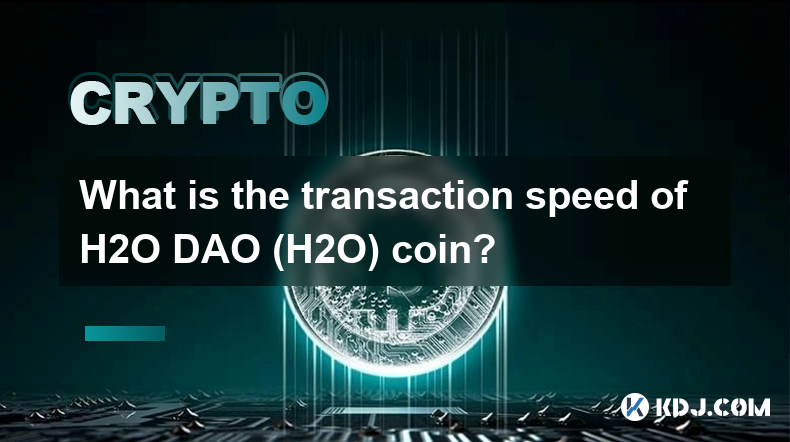-
 Bitcoin
Bitcoin $106,754.6083
1.33% -
 Ethereum
Ethereum $2,625.8249
3.80% -
 Tether USDt
Tether USDt $1.0001
-0.03% -
 XRP
XRP $2.1891
1.67% -
 BNB
BNB $654.5220
0.66% -
 Solana
Solana $156.9428
7.28% -
 USDC
USDC $0.9998
0.00% -
 Dogecoin
Dogecoin $0.1780
1.14% -
 TRON
TRON $0.2706
-0.16% -
 Cardano
Cardano $0.6470
2.77% -
 Hyperliquid
Hyperliquid $44.6467
10.24% -
 Sui
Sui $3.1128
3.86% -
 Bitcoin Cash
Bitcoin Cash $455.7646
3.00% -
 Chainlink
Chainlink $13.6858
4.08% -
 UNUS SED LEO
UNUS SED LEO $9.2682
0.21% -
 Avalanche
Avalanche $19.7433
3.79% -
 Stellar
Stellar $0.2616
1.64% -
 Toncoin
Toncoin $3.0222
2.19% -
 Shiba Inu
Shiba Inu $0.0...01220
1.49% -
 Hedera
Hedera $0.1580
2.75% -
 Litecoin
Litecoin $87.4964
2.29% -
 Polkadot
Polkadot $3.8958
3.05% -
 Ethena USDe
Ethena USDe $1.0000
-0.04% -
 Monero
Monero $317.2263
0.26% -
 Bitget Token
Bitget Token $4.5985
1.68% -
 Dai
Dai $0.9999
0.00% -
 Pepe
Pepe $0.0...01140
2.44% -
 Uniswap
Uniswap $7.6065
5.29% -
 Pi
Pi $0.6042
-2.00% -
 Aave
Aave $289.6343
6.02%
What is the transaction speed of H2O DAO (H2O) coin?
On the Ethereum network, H2O transactions may take from 10 seconds to 10 minutes to process, with confirmation times averaging about 5 minutes.
Dec 24, 2024 at 05:06 am

Key Points
- H2O DAO (H2O) is an ERC-20 token that operates on the Ethereum blockchain.
- Transaction speeds for H2O tokens depend on the congestion of the Ethereum network.
- Average transaction times range from 10 seconds to 10 minutes, with confirmation times of approximately 5 minutes.
- Gas fees associated with H2O transactions vary based on network traffic.
- Alternatives to the Ethereum blockchain, such as Binance Smart Chain and Polygon, offer faster transaction speeds and lower gas fees for H2O transactions.
Transaction Speed of H2O DAO (H2O) Coin
H2O DAO is a decentralized autonomous organization (DAO) that runs on the Ethereum blockchain. It aims to provide real-time information and analytics on the cryptocurrency market. The H2O DAO utilizes smart contracts and on-chain data analysis to detect market trends and provide insights to investors.
Transaction Speeds on Ethereum
The transaction speed of H2O DAO (H2O) coin is determined by the speed of the Ethereum network. Ethereum transactions are processed by a network of miners who verify and validate transactions before adding them to the blockchain. The transaction speed is primarily affected by the amount of data contained in the transaction and the level of network congestion.
Average Transaction Times
Under normal conditions, H2O transactions on the Ethereum network typically take around 10 seconds to 10 minutes to be processed. The confirmation time, which is the time it takes for a transaction to be fully confirmed and added to the blockchain, is usually around 5 minutes. However, transaction times can vary depending on network traffic and the size of the transaction.
Gas Fees
H2O transactions on the Ethereum network require payment of a transaction fee known as gas. Gas fees are paid in Ether (ETH), the native cryptocurrency of Ethereum. The gas fee is determined based on the computational resources needed to validate and execute the transaction. During periods of high network congestion, gas fees can be significantly higher.
Alternatives to Ethereum
If transaction speed is a critical factor, there are alternative blockchain networks that offer faster transaction speeds compared to Ethereum. Binance Smart Chain (BSC) and Polygon are two popular networks that provide faster transaction processing times and lower gas fees. H2O DAO is likely to support these alternative networks to improve the transaction speed of its token.
Optimizing Transaction Speed
To optimize the transaction speed of H2O tokens on the Ethereum network, users can consider the following tips:
- Choose off-peak hours: Avoid sending transactions during peak hours when the network is congested.
- Adjust gas fees: Setting a higher gas fee can incentivize miners to prioritize your transaction and process it faster.
- Consider layer-2 solutions: Exploring layer-2 scaling solutions like Polygon can help reduce transaction times and lower gas fees.
FAQs
What is the difference between transaction speed and confirmation time?
- Transaction speed: The duration from when a transaction is sent to when it enters the block verification process.
- Confirmation time: The time it takes for a transaction to be validated and immutably added to the blockchain.
Why is the transaction speed of H2O tokens dependent on the Ethereum network?
H2O tokens are ERC-20 tokens that utilize the Ethereum blockchain. As Ethereum is a decentralized network, the transaction processing speed is determined by the network itself.
What factors can affect the transaction speed of H2O tokens on Ethereum?
The amount of data, high network congestion, and gas fees can impact the transaction time of H2O tokens.
Disclaimer:info@kdj.com
The information provided is not trading advice. kdj.com does not assume any responsibility for any investments made based on the information provided in this article. Cryptocurrencies are highly volatile and it is highly recommended that you invest with caution after thorough research!
If you believe that the content used on this website infringes your copyright, please contact us immediately (info@kdj.com) and we will delete it promptly.
- Crypto Bull Run Expert Prediction: Navigating the Generational Surge
- 2025-06-20 08:25:12
- Peter Schiff's Stablecoin Stance: Gold vs. Fiat in the Crypto Age
- 2025-06-20 08:25:12
- Wyoming Stable Token (WYST): Sei Network Emerges as a Frontrunner
- 2025-06-20 08:45:12
- Semler Scientific's Bitcoin Bet: From Healthcare Tech to Largest Holder?
- 2025-06-20 08:45:12
- Bitcoin's Balancing Act: Demand, Selling Pressure, and the Road Ahead
- 2025-06-20 08:50:12
- Bitcoin Strategy: Semler Scientific's Bold 105,000 BTC Target and the Corporate Rush
- 2025-06-20 08:37:06
Related knowledge

How to customize USDT TRC20 mining fees? Flexible adjustment tutorial
Jun 13,2025 at 01:42am
Understanding USDT TRC20 Mining FeesMining fees on the TRON (TRC20) network are essential for processing transactions. Unlike Bitcoin or Ethereum, where miners directly validate transactions, TRON uses a delegated proof-of-stake (DPoS) mechanism. However, users still need to pay bandwidth and energy fees, which are collectively referred to as 'mining fe...

USDT TRC20 transaction is stuck? Solution summary
Jun 14,2025 at 11:15pm
Understanding USDT TRC20 TransactionsWhen users mention that a USDT TRC20 transaction is stuck, they typically refer to a situation where the transfer of Tether (USDT) on the TRON blockchain has not been confirmed for an extended period. This issue may arise due to various reasons such as network congestion, insufficient transaction fees, or wallet-rela...

How to cancel USDT TRC20 unconfirmed transactions? Operation guide
Jun 13,2025 at 11:01pm
Understanding USDT TRC20 Unconfirmed TransactionsWhen dealing with USDT TRC20 transactions, it’s crucial to understand what an unconfirmed transaction means. An unconfirmed transaction is one that has been broadcasted to the blockchain network but hasn’t yet been included in a block. This typically occurs due to low transaction fees or network congestio...

What to do if USDT TRC20 transfers are congested? Speed up trading skills
Jun 13,2025 at 09:56am
Understanding USDT TRC20 Transfer CongestionWhen transferring USDT TRC20, users may occasionally experience delays or congestion. This typically occurs due to network overload on the TRON blockchain, which hosts the TRC20 version of Tether. Unlike the ERC20 variant (which runs on Ethereum), TRC20 transactions are generally faster and cheaper, but during...

The relationship between USDT TRC20 and TRON chain: technical background analysis
Jun 12,2025 at 01:28pm
What is USDT TRC20?USDT TRC20 refers to the Tether (USDT) token issued on the TRON blockchain using the TRC-20 standard. Unlike the more commonly known ERC-20 version of USDT (which runs on Ethereum), the TRC-20 variant leverages the TRON network's infrastructure for faster and cheaper transactions. The emergence of this version came as part of Tether’s...

How to monitor large USDT TRC20 transfers? Tracking tool recommendation
Jun 12,2025 at 06:49pm
Understanding USDT TRC20 TransfersTether (USDT) is one of the most widely used stablecoins in the cryptocurrency ecosystem. It exists on multiple blockchains, including TRON (TRC20). The TRC20 version of USDT operates on the TRON network and offers faster transaction speeds and lower fees compared to its ERC-20 counterpart on Ethereum. When discussing l...

How to customize USDT TRC20 mining fees? Flexible adjustment tutorial
Jun 13,2025 at 01:42am
Understanding USDT TRC20 Mining FeesMining fees on the TRON (TRC20) network are essential for processing transactions. Unlike Bitcoin or Ethereum, where miners directly validate transactions, TRON uses a delegated proof-of-stake (DPoS) mechanism. However, users still need to pay bandwidth and energy fees, which are collectively referred to as 'mining fe...

USDT TRC20 transaction is stuck? Solution summary
Jun 14,2025 at 11:15pm
Understanding USDT TRC20 TransactionsWhen users mention that a USDT TRC20 transaction is stuck, they typically refer to a situation where the transfer of Tether (USDT) on the TRON blockchain has not been confirmed for an extended period. This issue may arise due to various reasons such as network congestion, insufficient transaction fees, or wallet-rela...

How to cancel USDT TRC20 unconfirmed transactions? Operation guide
Jun 13,2025 at 11:01pm
Understanding USDT TRC20 Unconfirmed TransactionsWhen dealing with USDT TRC20 transactions, it’s crucial to understand what an unconfirmed transaction means. An unconfirmed transaction is one that has been broadcasted to the blockchain network but hasn’t yet been included in a block. This typically occurs due to low transaction fees or network congestio...

What to do if USDT TRC20 transfers are congested? Speed up trading skills
Jun 13,2025 at 09:56am
Understanding USDT TRC20 Transfer CongestionWhen transferring USDT TRC20, users may occasionally experience delays or congestion. This typically occurs due to network overload on the TRON blockchain, which hosts the TRC20 version of Tether. Unlike the ERC20 variant (which runs on Ethereum), TRC20 transactions are generally faster and cheaper, but during...

The relationship between USDT TRC20 and TRON chain: technical background analysis
Jun 12,2025 at 01:28pm
What is USDT TRC20?USDT TRC20 refers to the Tether (USDT) token issued on the TRON blockchain using the TRC-20 standard. Unlike the more commonly known ERC-20 version of USDT (which runs on Ethereum), the TRC-20 variant leverages the TRON network's infrastructure for faster and cheaper transactions. The emergence of this version came as part of Tether’s...

How to monitor large USDT TRC20 transfers? Tracking tool recommendation
Jun 12,2025 at 06:49pm
Understanding USDT TRC20 TransfersTether (USDT) is one of the most widely used stablecoins in the cryptocurrency ecosystem. It exists on multiple blockchains, including TRON (TRC20). The TRC20 version of USDT operates on the TRON network and offers faster transaction speeds and lower fees compared to its ERC-20 counterpart on Ethereum. When discussing l...
See all articles

























































































